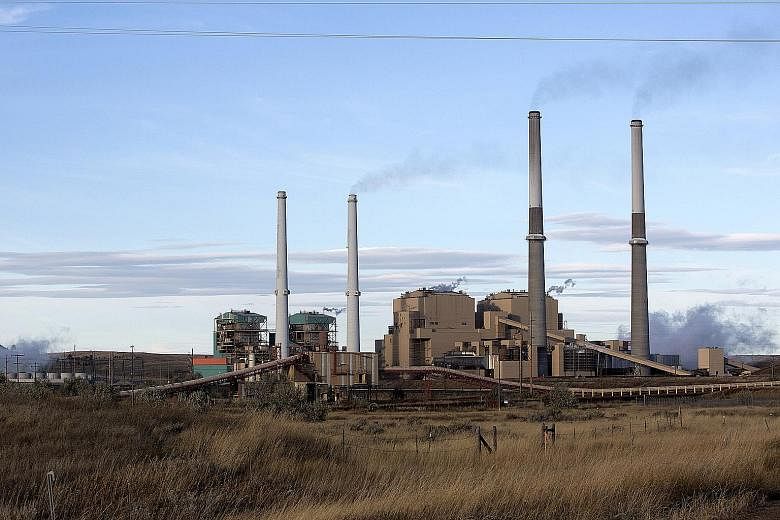WASHINGTON • The Trump administration has proposed major changes to the way the federal government calculates the benefits, in human health and safety, of restricting mercury emissions from coal-burning power plants.
In the proposal last Friday, the Environmental Protection Agency (EPA) issued a finding declaring that federal rules imposed on mercury by the Obama administration are too costly to justify.
It drastically changed the formula the government uses in its required cost-benefit analysis of the regulation by taking into account only certain effects that can be measured in dollars, while ignoring or playing down other health benefits.
The result could set a precedent reaching far beyond mercury rules.
"It will make it much more difficult for the government to justify environmental regulations in many cases," said Harvard University professor of environmental economics Robert N. Stavins.
The proposal technically leaves the mercury restrictions in place, but by revising the underlying justifications for them, the administration has opened the door for coal mining companies - which have long opposed the rules - to challenge them in court.
The rules, issued in 2011, were the first to restrict some of the most hazardous pollutants emitted by coal plants and are considered one of former president Barack Obama's signature environmental achievements.
In announcing the proposed rule, the EPA said the costs to industry in installing pollution controls ranged from US$7.4 billion (S$10.1 billion) to US$9.6 billion annually, while the health benefits of cutting mercury ranged from US$4 million to US$6 million annually.
In other words, it said the costs of the rule outweigh the benefits.
By contrast, the Obama administration in its calculations had cited an additional US$80 billion in health benefits a year.
Among other things, the Obama administration calculations estimated that the rules would prevent 11,000 premature deaths not from curbing mercury itself, but from what is known as a co-benefit - the reduction in particulate matter linked to heart and lung disease that also occurs when a plant reduces its mercury emissions.
The Trump administration's revised procedures would essentially ignore co-benefits and count only the direct potential benefits of cutting mercury.
In a statement, the EPA said the cost of cutting mercury from power plants "dwarfs" the monetary benefits and argued that the current limits can no longer be justified as "appropriate and necessary" under the law.
During his first year in office, President Donald Trump signed executive orders declaring his intention to dismantle environmental rules. As his second year comes to a close, agencies have set the wheels in motion to weaken or repeal nearly a dozen restrictions on air and water pollution or planet-warming emissions of carbon dioxide, including a plan to reduce the number of waterways that are protected from pollutants and another making it easier for utilities to build new coal plants.
Reworking the mercury rule, which the EPA considers the priciest clean-air regulation ever put forth in terms of annual cost to industry, would represent a victory for the coal industry and in particular for Mr Robert Murray, an important former client of acting EPA administrator Andrew Wheeler from his days as a lobbyist.
Mr Murray, chief executive of Murray Energy Corp, personally requested the rollback of the mercury rule soon after Mr Trump took office.
In a statement last Friday, Mr Hal Quinn, president of the National Mining Association, praised the new rule, calling the mercury limits "perhaps the largest regulatory accounting fraud perpetrated on American consumers".
Yet the EPA move also had its detractors within the industry. The vast majority of utility companies have said the proposed changes are now of little benefit to them, because they have already spent the billions of dollars needed to come into compliance, and have urged the Trump administration to leave the mercury measure in place.
Ms Ann Weeks, senior counsel for the Clean Air Task Force, an environmental group, criticised the rule as "bean counting", and said: "This is not tax law. This is public health benefits. It's a very different calculus."
NYTIMES

